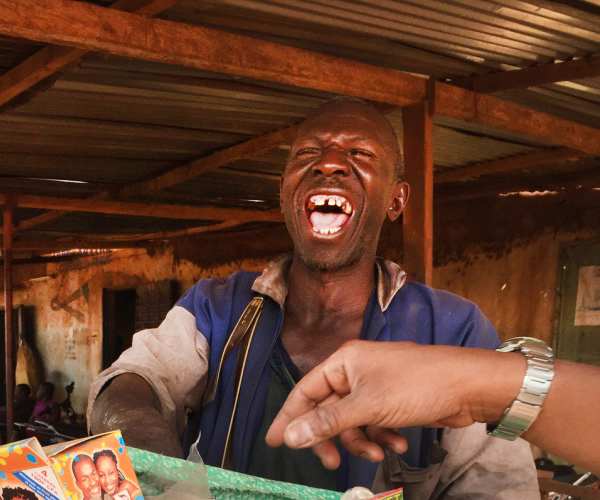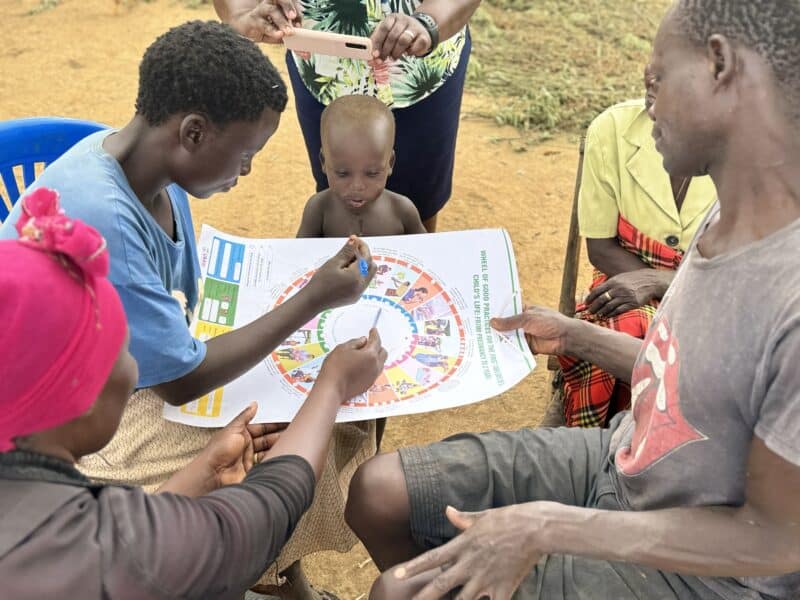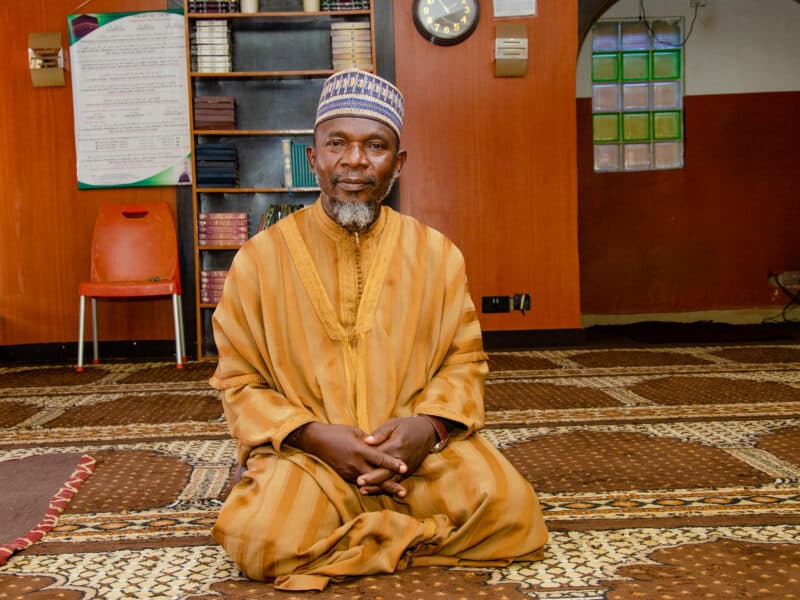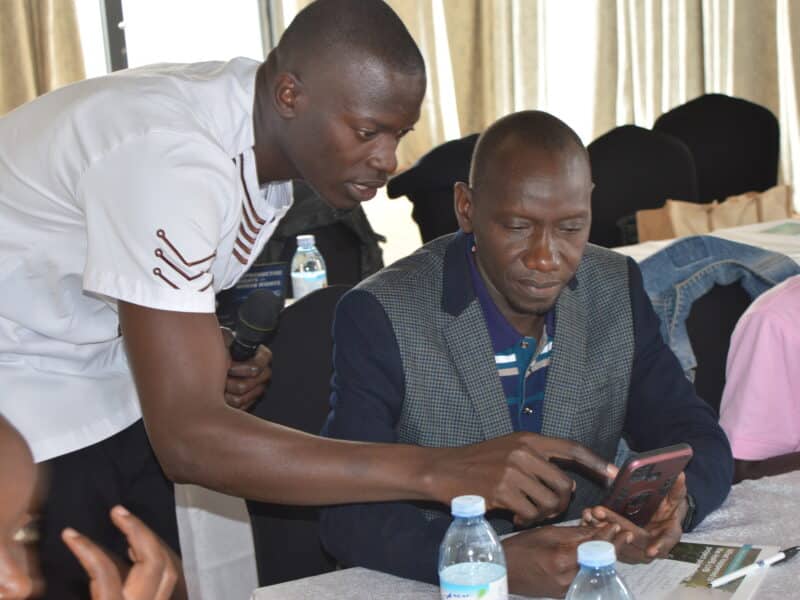Each woman in Mali gives birth to an average of six children. Nearly half of women in Mali have given before the age of 18, with one in 10 girls having babies before age 15. Mali is a rural, conservative nation of 18 million people – 95 percent Muslim – where talk about sex, let alone family planning, is considered taboo.
Despite these obstacles, over the past three years the Johns Hopkins Center for Communication Programs and its partners in the USAID-funded Keneya Jemu Kan (KJK) project have sold 23 million condoms. In the last year alone, they sold 14.9 million, 50 percent more than they anticipated.
“In Mali, a west African nation twice the size of Texas with serious security issues, not only did we have to find a way to stock the shelves in the smallest of villages and the largest of cities, but we helped make it culturally acceptable for people to buy condoms and other important health products,” says Susan Krenn, CCP’s executive director. “The unique story of Mali is that we have been able to reach incredibly remote places and help people change their behaviors.”
The north of Mali is marked by conflict and security concerns, so KJK does most of its work in the south. KJK has made its deepest inroads by working with wholesalers to distribute nine health products including condoms, tablets to clean water for drinking and zinc to treat diarrheal diseases. The wholesalers have convinced small shop owners that carry everything from sodas to sugar to carry these products, which are sold for very little. (A four-pack of condoms runs about 12.5 cents in U.S. currency).
But it’s not enough to just put the products on the shelves. Few Malians know how to use them and many wouldn’t even think to buy them.
To address that, KJK has worked with local NGOs and women’s groups in the villages to set up community demonstrations and household visits to “help people understand the importance of buying these products,” says Issaga Daffe, CCP’s Chief of Party in Mali. They train local villagers to demonstrate to their neighbors how to dissolve an Aquatab tablet in water to make it suitable for drinking and how and why to use a condom. The locals also discuss the benefits of birth spacing on the health of mothers and their children.
Before KJK began selling these products three years ago, the project conducted a landscape analysis to understand the barriers others had faced in the past to successfully distributing these health products, the factors that keep people from using health care products and what drives consumer behavior.
“A lot of people don’t know how to use a condom,” Daffe says. “These are very sensitive topics, very difficult conversations to start. Given the religious and political sensitivities, we don’t come out and say delay having children or don’t have so many children. But we can explain the benefits of our products.”
KJK also coordinates with midwives from the private midwives’ association and local country doctors’ practices to provide other forms of contraception, including IUDs and birth control pills. More than 664,000 injectable contraceptives were sold in the third year of the KJK project, nearly three times what was predicted.
Meanwhile, KJK is producing radio and television spots and programs to reinforce the messages, as well as putting up simple billboards. They have also created a mobile app to educate the country’s young people about family planning.
The strategy appears to be working. The sales tell the story.
Over the remaining two years of the project, KJK plans to introduce two new products: chlorhexidine, a low-cost antiseptic commonly used to clean umbilical cord stump during the first week of life of a baby, and Sayanna Press, a three-month injectable contraceptive that could allow women and girls to use it at home instead of having to go to a clinic. And KJK will continue promote, distribute and sell products to even more Malians.
It is that extended reach into the remotest of rural communities that has allowed KJK to be so successful, Krenn says.
“You can much more easily get supplies to urban areas,” she says. “But to be able to change behavior and also provide needed family planning products to the last mile, that is a tough nut to crack.”
The ultimate proof will be in the fertility rate.





